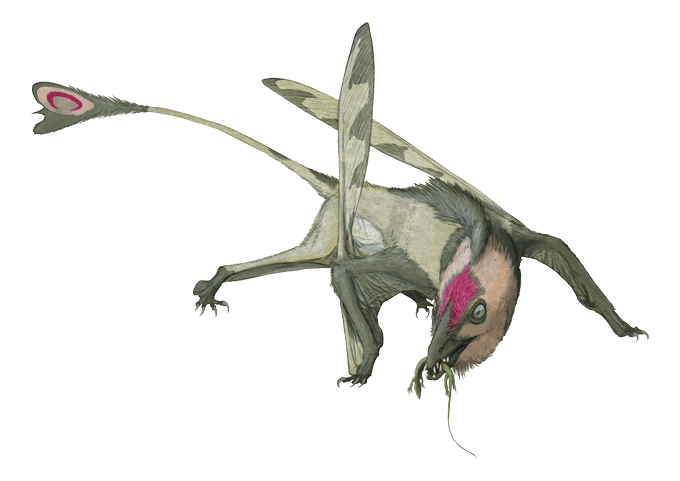Elanodactylus has some unique skeletal features among pterosaurs and evolved long neck vertebrae convergent with another group, the azhdarchids. https://t.co/PyfxWV07cv
Carniadactylus lived about 215 million years ago near the northern shore of the ancient Tethys Ocean. https://t.co/MzFJ6xO5lF
Pangupterus, described in 2016, is a pterosaur from the Jiufotang of China. It sports an incredibly long, slender beak studded with teeth near the tip. https://t.co/paU2pLeWe8
Cretaceous Romania was a wild place. This pterosaur, along with its two kin, ruled the roost of Hateg Island. https://t.co/3VRuOyG8nw
This enigmatic pterosaur from China is one of many from the famous Yixian Formation. https://t.co/3uttZaUvtG
Cute little Bellubrunnus is among the smallest of all known pterosaurs. It is also noteworthy because its wingtips curve forward, unlike other pterosaurs. https://t.co/WeTadwTPns
Paleontologists found Kepodactylus rather unexpectedly while digging up a Stegosaurus in the famous Morrison Formation of Colorado. https://t.co/rq5RoCPuOW
Wukongopterus is the founding member of the wukongopterids, a group of early pterosaurs characterized by long tails and elongated necks, an example of mosaic or modular evolution. https://t.co/SqxxWbSegO
The exceptional fossil of Beipiaopterus contains skin with blood vessels that may have been used for regulation of body heat. https://t.co/cFECSXv27S
Yet another pterosaur named by famous paleontologist Harry Seeley, Ornithostoma hails from the Early Cretaceous Cambridge Greensand Formation. https://t.co/4OxXZHOJUj











